By Rafet Ballı
The Palestinian resistance movement Hamas made a smart military move bringing Palestine to the forefront of the world’s agenda.
Israel couldn’t fully comprehend the political plan of the resistance front. At the cost of a massacre, Israel is trying to suppress the Palestinian people as a whole. Just as Israel has been doing since 1947 their aim is to expel the Palestinian people: This time from the Gaza Strip.
Prominent Atlantic powers are amassing in the Eastern Mediterranean. Their mission is to serve as protectors of Israel’s policy of massacre.
What is going to happen? There are two possible ways: Either a solution will be found based on the legitimate rights of the Palestinian people, or Israel, with the protection of the Atlantic powers, will thoroughly weaken the Palestinian resistance.
Reformists and Conservatives
Iran is among the determining forces in this equation. How do they interpret the developments? We had discussions with Reformist experts who had served in top-level security centers.
First, let’s open a lengthy parenthesis. In Iran, “Reformists” and “Conservatives” are not entirely separate and disconnected blocks. The main bodies of both sides often collaborate like a coalition in many areas. In fact, the core of power in Iran is organized around the Leadership. Even though Supreme Leader Ali Khamenei is a Conservative, he has demonstrated the flexibility of working with two Reformist presidents for eight years each.
Moreover, following the Karabakh war, Supreme Leader Khamenei personally intervened to ease the rising anti-Türkiye sentiment in Iran.
Conservatives maintain a firm and unyielding stance concerning the US and Israel and advocate for a strategic alliance with Russia and China.
Reformists, on the other hand, frame their approach as follows: “Neither West nor East, Islamic Republic.” (It’s worth noting that, after the Islamic Revolution, these words were inscribed above the entrance gate of the Iranian Ministry of Foreign Affairs: “Neither West nor East, Islamic Republic!”)
In other words, the Reformists want, in their own words, “balanced” relations with the West (with the exception of Israel). This can be interpreted as “balancing” Russia and China with the West. They believe that this approach will better safeguard Iran’s national interests in relations with Russia and China.
To a certain extent, this resembles Turkish President Recep Tayyip Erdoğan’s policy of “balance” between the Atlantic and Eurasia.
‘Yes’ to a ceasefire
What is the short-term plan of Hamas?
First, let me provide how Reformist experts in Iran describe Hamas: “A Sunni Islamist party fighting for the liberation of Palestine from Zionist occupation.” Note the phrase “Sunni”. Iran, which has “Shiism” in its constitution, underlines that it supports the “Sunni” Hamas to show that it has nothing to do with “sectarianism”.
As for Hamas’s short-term goals, Reformist experts list as follows: changing the balance of power between Israel and Gaza, preventing attacks and harassment at the Al-Aqsa Mosque, disrupting the so-called normalization process between Arab monarchies and Israel, stopping the demolition of Palestinian homes, removing Zionist settlers who are illegitimate armed militias, and promoting reverse migration in the region.
The two programs are pitted against each another. Israel is carrying out ethnic cleansing by expelling Palestinians and demolishing their homes. Also trying to increase its population by encouraging Jewish immigration to Palestine. Against this, Hamas has put “reverse immigration” in its program.
I asked about ceasefire. Their perspective is flexible. They indicate that, if Israel is willing to engage in negotiations, Hamas may accept a ceasefire and that means a successful step for Palestine at this stage.
Of course, they are aware such a ceasefire would be Israel’s acceptance of defeat.
Hamas’s long-term goals, according to information in Tehran, “depend on the response of Israel and the international community to its anti-occupation operation.”
Why is Israel afraid of Hezbollah?
The question that the whole world is curious about is: Will Hezbollah participate in the war?
Why is Hezbollah so important to everyone? Because in its 75-year history, Hezbollah has been the only force that has militarily challenged Israel and not been defeated. It is the only non-state force, not only in West Asia but globally, that effectively utilizes rocket and missile technology comparable to regular armies.
This is not only a claim. Israel painfully experienced this fact. In 2006, Israel attempted to dismantle Hezbollah by invading Southern Lebanon. The war lasted for 33 days, and in the end, Israel had to withdraw. Since then, Israel has refrained from launching a full-scale assault on Hezbollah.
Today, the prospect of Hezbollah opening a front from the north is what terrifies the US and Tel Aviv the most. One of the primary reasons for the buildup of Atlantic fleets in the Eastern Mediterranean is Hezbollah. The US is trying to prevent Hezbollah from engaging in war by exerting pressure on Iran and Syria.
By the way, it’s worth mentioning that the consensus among all parties is that Hezbollah’s inventory of rockets and missiles surpasses Hamas significantly in terms of capability, range, and quantity. According to the British broadcaster BBC, Hezbollah possesses at least 150,000 rockets and missiles.
In what case would Hezbollah enter the war?
The Iranian experts we spoke with summarized Hezbollah’s position as follows:
“Hezbollah’s red line is clear: preventing the destruction of the Palestinian resistance. Because if Israel manages to do that, then Hezbollah will be the next target. Since October 7, the small clashes that Hezbollah has engaged in with Israel have ensured that about half of Israel’s forces, especially combat ground forces, are held in check on the northern front near the Lebanese border. This is a success.”
Israel’s potential ground operation is also a matter of great sensitivity for Hezbollah.
In conclusion, Hezbollah, through its daily rocket attacks, both compels Israel to maintain a military presence on the northern front and monitors the Israeli troop buildup in the region.
Why is the US Navy in the East Mediterranean?
Our experts evaluated how the Atlantic fleets in the East Mediterranean relate to Palestine:
“The US wants to avoid a direct involvement of Iran and Syria in the conflict. Of course, in the event Israeli forces are routed, the US Navy might engage in war against the Palestinian people.”
My impression is that Iran prioritizes the idea that the Palestinian cause should primarily rely on Palestinian forces.
I am relaying another scenario told by the Reformist experts:
“One of the reasons for the US Navy’s deployment to the Eastern Mediterranean might be to eliminate pretexts that Israel could use to attack Iran.”
Joint Resistance Center
On the first day when Hamas initiated the ‘Aqsa Flood’, on October 7th, an important step was taken: Islamic resistance movements from Iran, Syria, Lebanon, Iraq, Yemen and Afghanistan, including Hezbollah and Hamas, established a Joint Resistance Center. It serves as a kind of joint command post. That’s a significant move. The Joint Resistance Center, according to unconfirmed reports, indirectly warned that if Israeli occupation forces launched a ground invasion in Gaza, Hezbollah would take action.
It appears that we will see the prominence of the Joint Resistance Center in the coming period.
Groundbreaking proposal of Iran
I’d like to announce a little-known proposal. According to Reformist experts, Iran presented a referendum plan to the Organization of Islamic Cooperation (OIC) in 1996 as a solution to the Palestinian issue. The plan was recorded in the OIC and the United Nations General Assembly. Iran proposed Palestine to be established based on democratic and equal rights by Muslim Arabs, Christian Arabs and Jews. It’s a groundbreaking proposal because the prevailing belief is that “Iran wants to eliminate Jews.” It is a pity that Tehran did not insist and keep it on the agenda.
This article first appeared in Turkish daily newspaper Aydınlık. Translation by UWI.







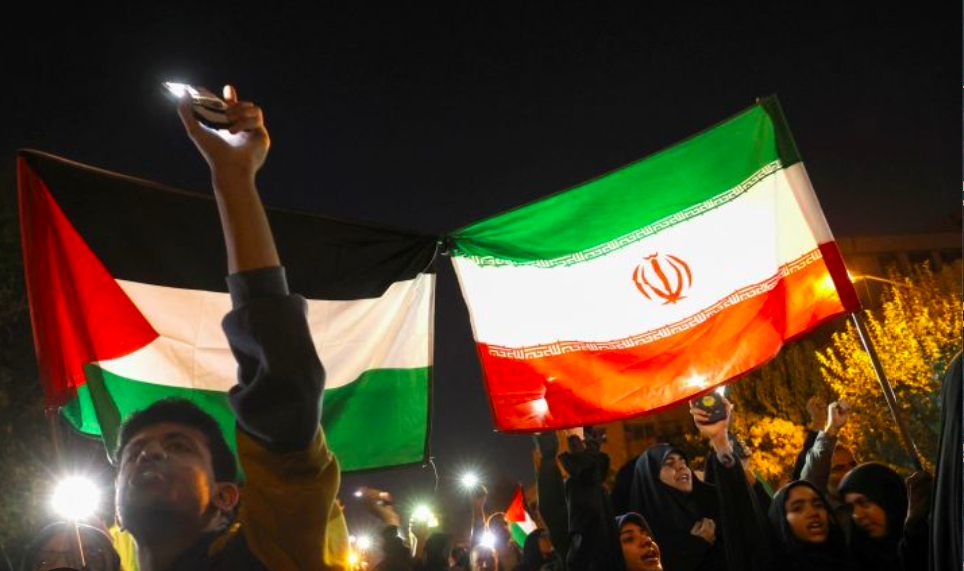
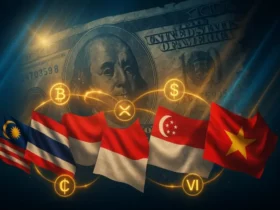
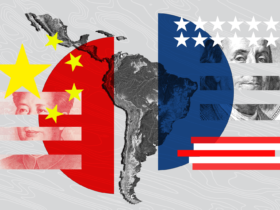


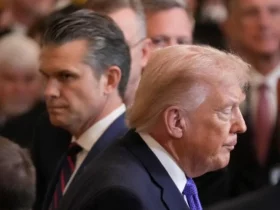
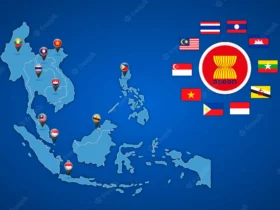
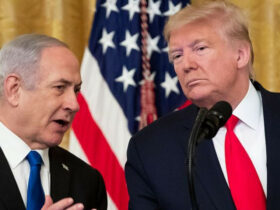


Leave a Reply